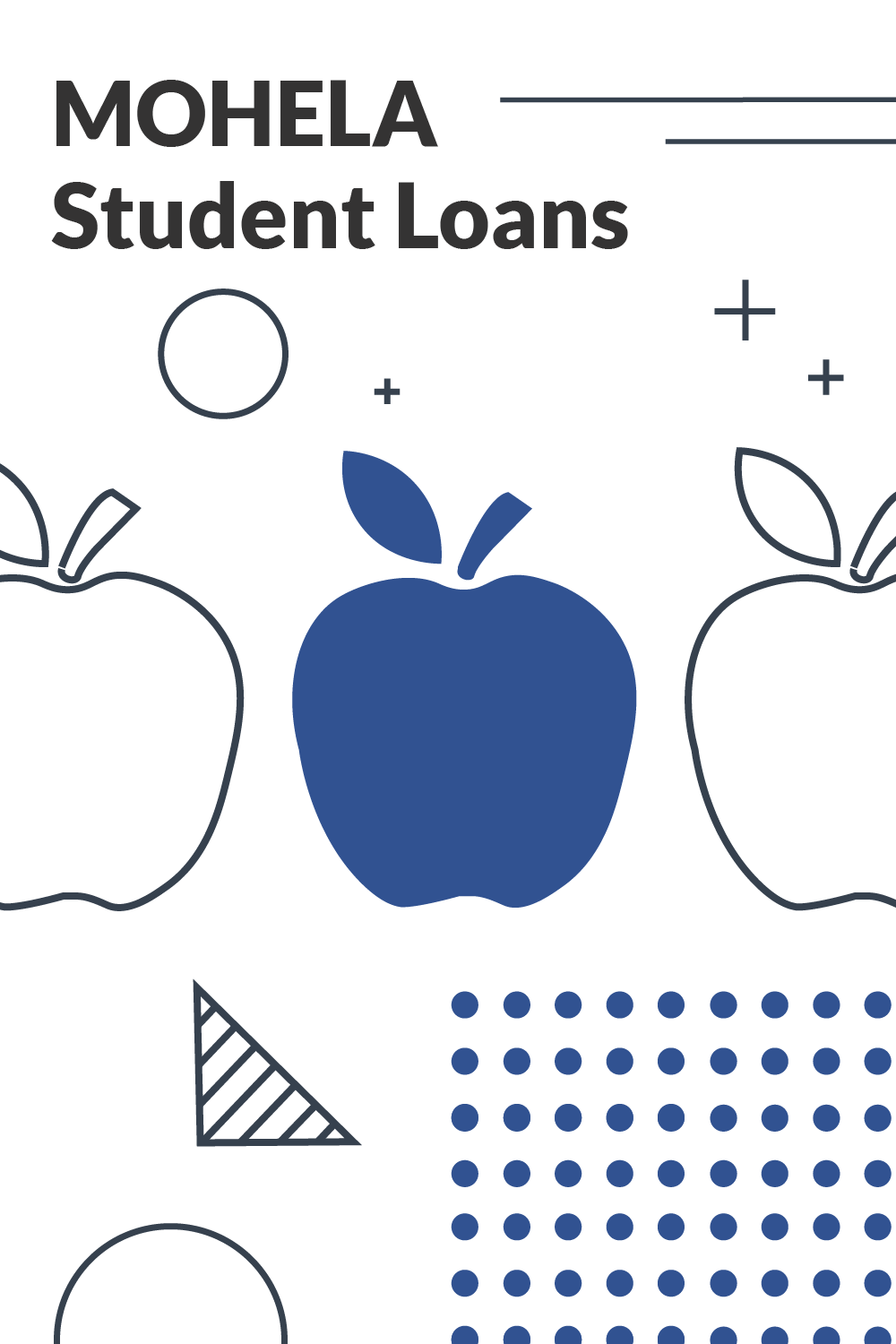
What is MOHELA? MOHELA (pronounced mo-HEE-lah), aka the Missouri Higher Education Loan Authority, services millions of borrowers as one of the major contractors hired by the government to service federal student loans.
It was founded in the 1980s as a private, non-profit organization sponsored by the state of Missouri to do a public good.
Some of these are frustrating because the borrower has little control over them. However, some of the issues we’ve described here can be mitigated or even avoided altogether with better borrower knowledge.
We recommend you do your research thoroughly to make sure you’re getting the correct information. Your servicer may not always communicate the right way.
If you're not quite sure where to start or what to do, consider hiring a CFA to help you with your student loans. We recommend The Student Loan Planner to help you put together a solid financial plan for your student loan debt. Check out The Student Loan Planner here.
Who Is MOHELA Student Loan Servicing?

MOHELA student loan servicing is one of the largest student loan servicing companies nationwide.
In recent years, the government has contracted them to service other kinds of Department of Education loans, like the Direct Loans and Perkins Loans programs.
They also service private loans. In 2015, all Direct Loans that had previously been serviced by Aspire Resources, an Iowa-based organization, were transferred to MOHELA.
We’re here to look at some of the problems consumers have had when dealing with MOHELA. We hope this leaves you empowered with knowledge and maybe with better context with your own loan servicing issues.
MOHELA manages a huge amount of loans held by borrowers nationwide, so while there are plenty of complaints to sift through in the Consumer Financial Protection Bureau database, the Better Business Bureau website, and various other places around the web, they actually have a relatively low number of publicly posted complaints compared to their size.
MOHELA has recently found themselves facing a lot of issues, including being a party to the Supreme Court case on student loan forgiveness, to botching student loan payments and PSLF paperwork.
In 2024, MOHELA migrated to a new StudentAid.gov portal. You can find the new website here: https://mohela.studentaid.gov/
MOHELA Now Handles PSLF Applications
With Fedloan Servicing announcing that they are going to be leaving the student loan servicing industry, MOHELA is the loan servicer that's been assigned by the Department of Education to oversee Public Service Loan Forgiveness Applications.
If you apply for Public Service Loan Forgiveness, your loan will be transferred to MOHELA, who will process your application.
Common Issues With MOHELA
Here are some of the most common issues borrowers have with MOHELA.
Excessive Phone Calls
All servicers need to contact the borrowers they work with at some point. For many borrowers, problems can arise and compound when their servicer cannot reach them. However, when other servicers may claim they did their due diligence after one or a few attempts, MOHELA does not give up. In fact, they may go too far.
This issue has two sides. First, MOHELA tried to contact borrowers whose account recently became delinquent. Several borrowers spoke about how after one missed payment, MOHELA launched calls to their homes, workplaces, and family members.
Often family members were not listed on the borrower’s account, but contacted through skip-tracing. Borrowers felt this was excessive given they were often just one payment behind. Some claimed to not actually be delinquent at all, but having paid on time or having been in forbearance.
The second side shows a different point of view: family, friends, and acquaintances of a (possibly) delinquent borrower. Complaints detail how they were called multiple times a week, sometimes multiple times a day, and were confused by the source of the calls given they did not have any loan associated with MOHELA.
Some call recipients called back only to find they were being contacted because someone in their life, sometimes an ex-spouse or old friend they hadn’t seen in decades, was delinquent on their loans. Some recipients of these calls were elderly and just wanted to be left alone.
Some asked to be taken off the list; sometimes that worked, sometimes the calls kept coming. Still, given that these folks aren’t even the debtors, the number of phone calls many people received is troubling.
One instance was a case of mistaken identity, where the recipient of multiple phone calls from MOHELA was not a borrower, nor a friend or relative of the borrower, but simply had a similar name to a debtor. When they repeatedly told MOHELA they were not the right person and they must stop calling, MOHELA insisted they needed to write a formal cease and desist letter.
If you feel you are being harassed by phone calls, there are a few options. First, you can put your number on the Do Not Call Registry. Note that this is for sales calls only. Debt collectors, pollsters, and other kinds of calls are allowed to go through. (MOHELA was accused by some call recipients of trying to sell their services, so this might be applicable.)
Second, you can tell the organization calling you to stop. This might be achieved through a simple phone call of your own, if you specifically tell them to take you off their list, especially if you owe no debts. Even if you do owe money on a loan, there are still laws that protect you from being harassed by phone calls.
If a verbal warning to the caller isn’t enough, a cease and desist letter sent to the organization might be your best option. You might want to have a lawyer look over the language, especially so you don’t accidentally imply that you might be a debtor to a certain loan when you are not or agree to anything you did not wish to.
Issues With Transfers To And From MOHELA
The truth about loans is that you don’t have much control over who holds or services them. What does this mean? With federal loans, your loan servicer might switch to any other servicer authorized to handle federal loans.
With private loans, your loan could be sold to pretty much anyone. This is an unfortunate aspect of owing money. That being said, the transfer of loans to or from MOHELA has brought up some issues, especially concerning the mass transfer of loans from Aspire to MOHELA. Here’s what we found.
For some borrowers, their loans were being reported to the credit bureaus by Aspire as delinquent when they had in fact just been transferred to MOHELA. (To be fair, we’re not sure if this is a problem with Aspire, MOHELA, or both!) For other borrowers, their loans were being reported by MOHELA, which was their actual servicer, as delinquent when, in fact, the loans were current and recently transferred from Aspire.
Another thing that got lost in the transfer was documentation of payment histories. A few borrowers claimed they requested their payment histories on their loan for various reasons after the transfer had occurred from Aspire, only to be delayed or evaded entirely by customer service.
Repayment schedules and payment obligations went haywire in some cases. For example, a loan that was set to be paid off in less than a month suddenly was scheduled to be paid off in two years. For others, their monthly payment shot up by a huge factor due to an unapproved change in their repayment term.
Then, to solve the issue, they were put into forbearance as they were switched back to the original plan from the plan they never asked for in the first place. MOHELA does address on their website that changes in repayment terms after a transfer are possible, but poor communication and confusing rules seemed to throw many borrowers for a loop.
Confusion About Public Service Loan Forgiveness (PSLF)
These complaints are more complicated than just servicing issues, but they’re worth mentioning anyway. They may arise because of several factors: the confusing nature of the Public Service Loan Forgiveness program, the lack of borrowers’ knowledge about it, and MOHELA’s failure to inform borrowers properly. Here’s what we found:
One borrower was unsure how many, if any, qualifying payments they had made. They had already switched to a qualifying loan, but was unsure how many qualifying payments they had made. The borrower contacted the Department of Education, who told them they couldn’t find out and referred them to MOHELA.
The borrower then contacted MOHELA, who said they didn’t know and to contact the Department of Education. (That’s when they decided to enter a complaint with the CFPB.)
One borrower had made nine years’ worth of payments on a plan they were assured by MOHELA qualified for PSLF. They just realized at the time of their writing they were not making any qualifying payments.
Similarly, another borrower specifically asked to enroll in a PSLF-qualifying repayment plan, only to realize several years later they had not been. Yet another borrower was on the verge of making the full 10 years’ worth of payments when they discovered that none of them qualified for PSLF.
MOHELA And SoFi
MOHELA has started servicing some loans on behalf of SoFi. As you know, SoFi is one of the most popular student loan refinancing companies.
It's important to note that refinanced student loans are private loans, and so the rules that govern them are a bit different than Federal student loans. We haven't seen or heard any problems with regard to SoFi loans being serviced incorrectly.
However, as with any loan, you need to be vigilant. Nobody cares more about your money than you do!
MOHELA Student Loan Forgiveness?
Remember, MOHELA is simply a loan servicer. As such, they process the paperwork for any program offered by your student loans.
Since MOHELA is taking over for FedLoan when it comes to Federal loan servicing, MOHELA will be the primary loan servicer responsible for processing Public Service Loan Forgiveness. They will also be the processor for TEPSLF and the Biden Waiver.
Depending on your student loan, you may have other loan forgiveness opportunities available. However, MOHELA may not be the loan servicer that handles it. In that case, your loan will be transferred to the appropriate servicer.
How to Contact MOHELA Customer Service
You can reach out to MOHELA customer service in the following ways (we always recommend using the online Secure Upload and web portal for all contact - it keeps a paper trail of your communications):
Website: https://mohela.studentaid.gov/
Phone number: (888) 866-4352
Hours of operation: 7– 9 Mon–Thu and 7–5 on Fri (CST)
General mailing address:
MOHELA
633 Spirit Drive
Chesterfield, MO 63005-1243
Email/online contact form: Contact form provided after you enter your state on this page.
If You Need More Help
Some of these loan servicer issues are frustrating because the borrower has little control over them. However, some of the issues we’ve described here can be mitigated or even avoided altogether with better borrower knowledge. We recommend you do your research thoroughly to make sure you’re getting the correct information. Your servicer may not always communicate the right way.
And while we didn’t cover all the available complaints about MOHELA, many of them are typical grievances against servicers like misapplication of payments and conflicting information. We want you to stay alert about the status of your loan and double-check the work of your servicer. With luck, you might not have any problems at all.
The main way to get help directly from the Department of Education (MOHELA's boss) is to file a complaint with the Student Loan Ombudsman.
If you're not quite sure where to start or what to do with your student loan debt specifically, consider hiring a CFA to help you with your student loans. We recommend The Student Loan Planner to help you put together a solid financial plan for your student loan debt. Check out The Student Loan Planner here.
They work with you to assess your loan situation and help you figure out the payment plan that fits you best.
Have you ever used MOHELA student loan servicing or experienced any of these issues with a loan servicer in the past?

Robert Farrington is America’s Millennial Money Expert® and America’s Student Loan Debt Expert™, and the founder of The College Investor, a personal finance site dedicated to helping millennials escape student loan debt to start investing and building wealth for the future. You can learn more about him on the About Page or on his personal site RobertFarrington.com.
He regularly writes about investing, student loan debt, and general personal finance topics geared toward anyone wanting to earn more, get out of debt, and start building wealth for the future.
He has been quoted in major publications, including the New York Times, Wall Street Journal, Washington Post, ABC, NBC, Today, and more. He is also a regular contributor to Forbes.
Editor: Clint Proctor Reviewed by: Claire Tak
